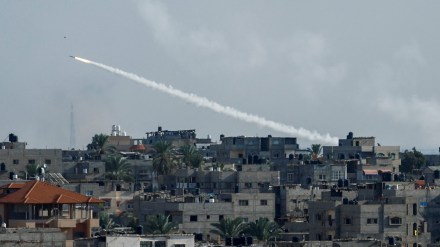The recent violation by Hamas that caught the complacent Israel government off guard evoked a knee jerk reaction with the NDF launching direct assault/offensive on Hamas hideouts in Gaza as there was not enough time for respond with tactical or targeted handling of the situation. “Over 26 days into the war declared on Hamas by Prime Minister Benjamin Netanyahu’s government, it has exposed and widened the fissures in the global power play, where a clear right and left divide is emerging,” explains Dr Prof Nishakant Ojha, Eminent Expert-Counter Terrorism (West Asia & Middle East).
In conversation with Financial Express Online, he says, “The US, UK, France, Germany, Australia, Sweden, Norway, Poland, Spain, India and other European Union countries backing Israel are called out as the right wing, while those supporting Hamas are Jordan, Qatar, Syria, Turkey, Iran, Lebanon, Arab League along with Russia and China pitching in to form the Left wing. As the war intensifies with no signs of a ceasefire, more nations are coming forward showing their support to the respective players engaged in the fierce battle in the south-west Asia theatre.”
According to him, the geo-political matrix is changing in an unprecedented manner where equations between countries are dictated by self-interest, market strategies and dependencies. “In such scenarios countries unwittingly succumb to varying factions to only be sucked into blocs of religion, economic, military and many others. Behind the scenes secret pacts, understandings and multi-layered diplomatic complexities are making the world and its ways more intriguing, fearful and unstable.”
He highlighted several other issues including:
The sudden US withdrawal from Afghanistan, leading to the Taliban taking control.
The Chinese threat to the Philippines and Cambodia, including military exercises.
North Korea’s intermittent threats to use its nuclear capabilities.
The Russia-Ukraine crisis.
Violations of the Line of Control (LOC) and Line of Actual Control (LAC) by Pakistan, supporting cross-border terrorism with India.
Diplomatic tensions between India and Canada due to Khalistani separatist demands.
Unprovoked attacks on Indians and consulates in the UK and Australia.
The recent attack on Israel by Hamas operating from Gaza.
Low-key aggression by Hezbollah, another terror organization operating from Lebanon.
A general increase in mistrust, fragile international relationships, and disregard for the restraints advocated by organizations like the UN.
“These incidents indicate rising tensions and conflicts between nations, affecting every continent and sometimes drawing more powerful nations into the disputes,” Dr Prof Nishakant Ojha states.
Adding, “an interesting facet is that the real masters of the geo-political game are elsewhere, who fund and support unrest, usurping of land belonging to other countries such as China’s constant manoeuvres along the borders to infiltrate and occupy Indian territories, and other forms of aggression are increasingly frequent.”
“Regimes are bought or thrown out and even financial aid and investments are used as tools for arm- twisting the weaker economies to dominate them or ‘bringing them around.’”
In his opinion there are several countries in Africa too that have faced the brunt of the corporate, western world and the Chinese grip of investments and debts. “The brazen tussle of ideological, religious and economic dominance not only disturbs the development of a nation, putting survival at stake, but snowballs into a major crisis and collapse of governments, rendering many people homeless, jobless, or forced to flee from oppression, terror and military attacks, seeking asylum in other countries. The depravity and destruction caused to people, property and huge investor money is mind boggling. All the good being done is blown up!”
This state of constant unrest and strife is providing cover to terror groups to sneak into foreign territories to create more mischief, both overt and covert.
India-Russia
On the India-Russia relation, Dr Ojha says, “What is interesting to note is that India has a longstanding friendly tie with Russia, and supports the latter in the Ukraine war. On the contrary, India continues to treat its aggressor, China, with continued mistrust, the recent Galwan showdown, adding to the indifference. Russia and China are both communist states, whereas India is a democracy.”
Adding, “Another equation is that Pakistan and China share a cordial relationship, but both are sworn enemies of secular India, Surprisingly, the Uyghur Muslims are discriminated by the Chinese government to the extent that they are tortured and most live in prison camps, but Pakistan does not object to human rights violation or religious bigotry. For India, it warrants high vigil along the porous borders against China and Pakistan.”
As they say, politics make strange bedfellows and are similar to sifting sand where nothing is permanent. Every argument comes down to the interest of the country and its people. “The world is in turmoil and only collective sane minds, and strong will can avert a catastrophic World War Three. India, fast emerging as a global power to contend with, has secret and jealous enemies, and to negate them, India’s diplomacy skills is sure to be put through the test of fire,” he concludes.
